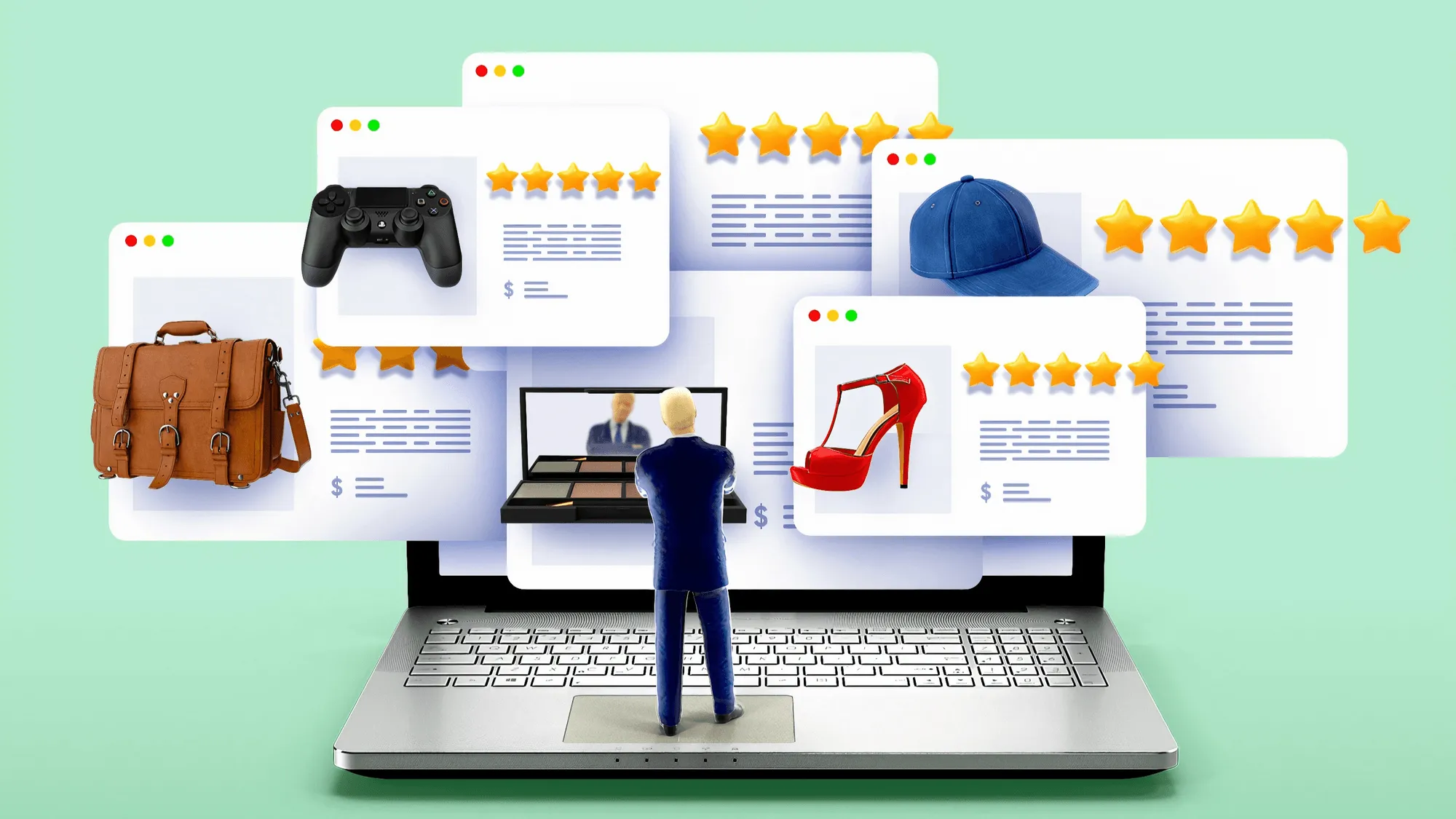Comparing Top Marketplaces to Buy and Sell Online
The e-commerce landscape is bustling with numerous online marketplaces, each offering unique features and benefits for buyers and sellers. Choosing the right platform depends on various factors, such as the type of products you’re dealing with, your target audience, and your business goals. Below, we compare some of the top online marketplaces to help you determine which platform might be the best fit for your buying and selling needs.
1. Amazon
- Overview: Amazon is the world’s largest online marketplace, known for its vast selection of products, fast shipping, and customer-centric approach.
- Best For: Sellers with a broad range of products, including electronics, books, clothing, and household items. Ideal for businesses looking to scale quickly.
- Pros:
- Massive global reach and customer base.
- Advanced fulfillment options (Fulfillment by Amazon – FBA).
- Trust and credibility with consumers.
- Cons:
- High competition.
- Fees can be significant, especially with FBA.
- Strict seller guidelines and policies.
2. eBay
- Overview: eBay is a well-established platform that offers both auction-style and fixed-price listings, catering to a diverse audience.
- Best For: Sellers of unique, vintage, or collectible items, as well as those looking to reach a global audience.
- Pros:
- Flexible selling formats (auction or fixed price).
- Strong international presence.
- Suitable for both new and used items.
- Cons:
- Fees can add up, including listing and final value fees.
- The auction format can lead to uncertainty in final sales price.
- Higher potential for fraudulent activities compared to some other platforms.
3. Etsy
- Overview: Etsy is a niche marketplace that specializes in handmade, vintage, and craft items, with a strong community focus.
- Best For: Artisans, crafters, and sellers of vintage goods looking for a platform that appreciates unique and creative products.
- Pros:
- Dedicated audience interested in handmade and vintage items.
- Lower fees compared to some larger marketplaces.
- User-friendly interface for creating and managing listings.
- Cons:
- Limited to specific product categories (handmade, vintage, craft supplies).
- Smaller customer base compared to Amazon or eBay.
- Less suitable for large-scale operations.
4. 10hp.in
- Overview: 10hp.in allows users to buy and sell items within their local communities, integrated directly with the 10hp.in.
- Best For: Individuals and small businesses looking to sell locally, especially larger items like furniture, vehicles, and appliances.
- Pros:
- No listing fees.
- Easy communication through Facebook Messenger.
- Integration with Facebook’s social network for enhanced visibility.
- Cons:
- Primarily local transactions, limiting geographic reach.
- Less robust payment and shipping options.
- Potential safety concerns with in-person transactions.
5. Shopify
- Overview: Shopify is an e-commerce platform that allows businesses to create and manage their own online stores, with extensive customization options.
- Best For: Businesses of all sizes looking to establish a standalone online presence with full control over branding and customer experience.
- Pros:
- Complete control over your online store’s design and functionality.
- Integration with multiple sales channels (social media, physical stores).
- Scalable for businesses of all sizes.
- Cons:
- Monthly fees and additional costs for apps and themes.
- Requires more setup and maintenance compared to marketplaces like Amazon.
- No built-in marketplace traffic; relies on your own marketing efforts.
6. Craigslist
- Overview: Craigslist is a simple, classifieds-style platform that facilitates local buying and selling in various categories.
- Best For: Selling second-hand items, particularly large or bulky items that are best handled locally.
- Pros:
- Free to list most items.
- Direct local transactions.
- No middleman, allowing for direct communication between buyer and seller.
- Cons:
- No integrated payment or shipping options.
- Higher risk of scams and fraud.
- Basic interface with limited features.
7. Walmart Marketplace
- Overview: Walmart Marketplace allows third-party sellers to list their products on Walmart’s website, benefiting from the brand’s extensive reach and reputation.
- Best For: Established businesses looking to expand their online presence and reach Walmart’s customer base.
- Pros:
- Access to Walmart’s large customer base.
- Option to use Walmart’s fulfillment services.
- Trusted brand association.
- Cons:
- Stringent approval process for sellers.
- Fees similar to Amazon, which can impact profitability.
- Competition with Walmart’s own product listings.
8. OfferUp
- Overview: OfferUp is a mobile-centric platform that facilitates local buying and selling, focusing on user-friendly interactions.
- Best For: Local sellers of used items, particularly in categories like electronics, furniture, and vehicles.
- Pros:
- Easy-to-use app interface.
- No listing fees for basic posts.
- Built-in messaging for seamless communication.
- Cons:
- Primarily focused on local transactions, limiting broader reach.
- Limited features for business sellers.
- Safety concerns with in-person meetups.
9. Alibaba
- Overview: Alibaba is a global marketplace primarily used for wholesale buying and selling, connecting businesses worldwide.
- Best For: Manufacturers, wholesalers, and businesses looking to source products in bulk or sell to international markets.
- Pros:
- Access to a vast network of international buyers and suppliers.
- Ideal for bulk purchasing and wholesale transactions.
- Extensive range of products and categories.
- Cons:
- Complex logistics for international shipping.
- Language barriers and varying international regulations.
- Potential risks with quality control and counterfeit goods.
10. Poshmark
- Overview: Poshmark is a social commerce platform focused on fashion, allowing users to buy and sell clothing, accessories, and home goods.
- Best For: Sellers of new or gently used fashion items, especially those looking to engage with a community of fashion enthusiasts.
- Pros:
- Strong community and social features.
- Simple selling process with built-in shipping labels.
- Focused on fashion, attracting a dedicated audience.
- Cons:
- Fees can be relatively high for lower-priced items.
- Limited to fashion and related categories.
- Intense competition among sellers for visibility.
Conclusion
Each of these top marketplaces offers unique advantages, making them suitable for different types of sellers and buyers. Amazon and eBay dominate in terms of scale and reach, making them ideal for businesses looking to reach a global audience. Etsy and Poshmark cater to niche markets, appealing to sellers of handmade and fashion items. Platforms like Facebook Marketplace and OfferUp excel in local transactions, while Shopify offers unparalleled control for businesses wanting to build a standalone online store. By understanding the strengths and limitations of each platform, you can make an informed decision on where to buy or sell your products in 2024.

